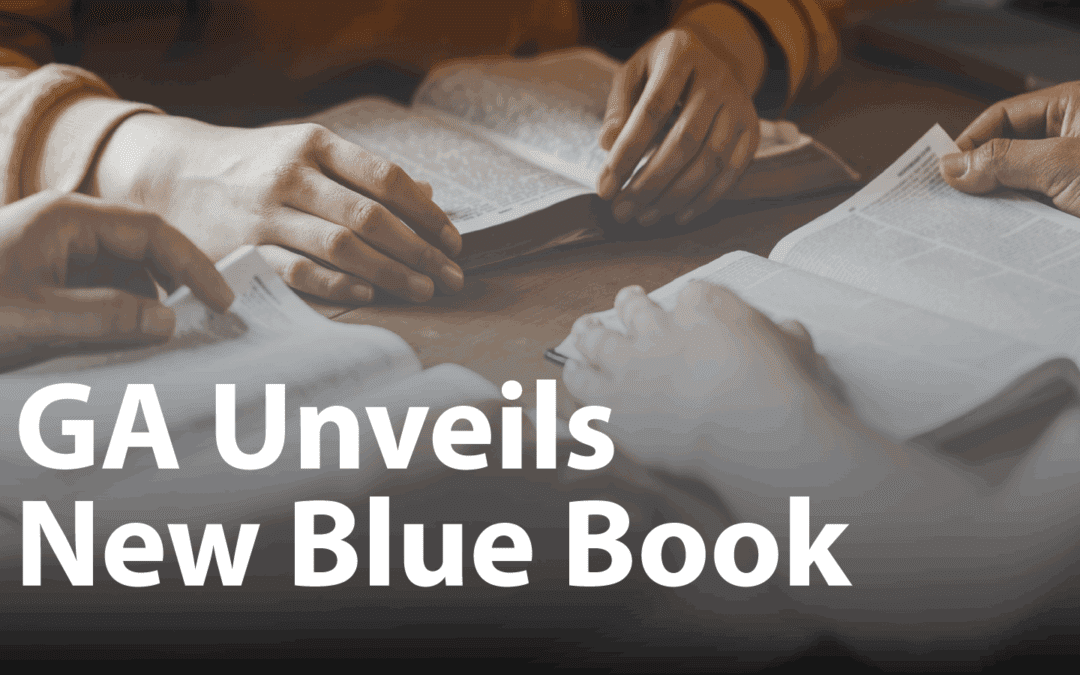Gamblers Anonymous (GA) has unveiled an updated Blue Book, the first such revision in nearly 40 years. The purpose of the book is to better serve both new and current members in their search for recovery from gambling addiction.
Specifically, members wanted a book that would:
o Function as a how-to for GA
o Facilitate working with sponsees
o Help members quickly understand the process
o Be something that would help anyone understand what the program is
The existing Blue Book was dated and generally not being used by the fellowship, according to Tom S., a member of the committee charged with producing an updated book. Considerable changes have taken place in gambling since 1984, including online sports betting and the proliferation of casinos.
“Mostly gone are the days of cigar-smoking horse players and sports bettors dropping a dime in a payphone and calling a bookie,” says Tom. “The gamblers coming to our meetings today are more likely to be casino gamblers, gamblers caught up in state-sponsored gambling, female gamblers and younger gamblers. They didn’t find a connection to the Blue Book of 1984.”
The revised book reflects changes that have already occurred in most GA meetings, including an effort to be more inclusive and an emphasis that meetings be solution-based — including recovery steps — rather than “war story” based.
The book was eight years in the making (partially delayed by the pandemic) and was produced by eight active Minnesota GA members with combined sobriety of approximately 120 years. The book is comprised of all original material, with no language borrowed from other twelve-step fellowships (although twelve-step principles and philosophy are woven throughout).
The book encapsulates the vast experience of its contributors and is a storehouse of ideas for recovering gamblers, covering issues such as how to deal with gambling urges, how to go to a meeting, how to get involved in GA, how to choose a sponsor, how to grow in recovery and how to repair relationships. The book also incorporates material from the GA Combo Book.
New chapters were added that address suicide, relapse, sponsorship, and hope and persistence.
“The chapter on suicide is extremely important and, until now, was completely missing from GA literature,” says Tom.
The new book does not include declaratives, such as “you must” or “you have to” statements. Different viewpoints are discussed and the suggestion is made for gamblers to discuss these perspectives with their sponsor or mentors.
The book is valuable for clients of counselors and therapists who choose to pursue their personal recovery journey in GA. Clients may also see themselves in the experiences depicted in the stories section of the book.
“I would encourage those who work with compulsive or problem gamblers to read this book from cover to cover, as it captures both the despair experienced by compulsive gamblers and the better way of life promised by GA,” says Jeannie B., who was also involved in producing the new book. “Professionals can also use the book to deepen their understanding of the GA program.”
To order a copy of the book, please visit gamblersanonymous.org.

